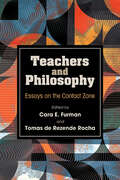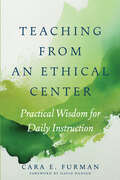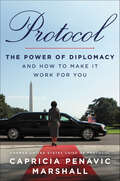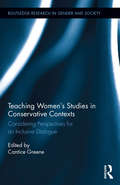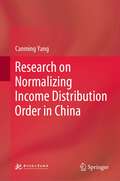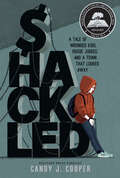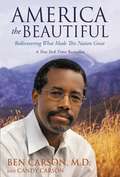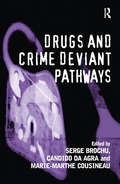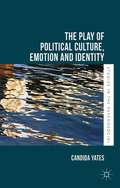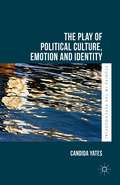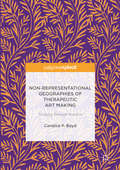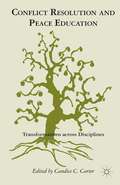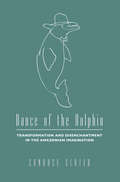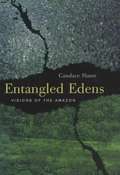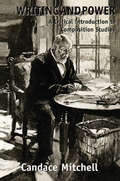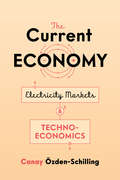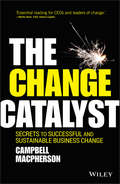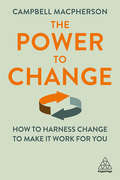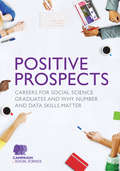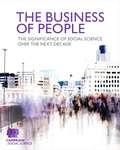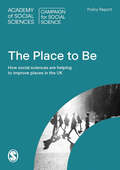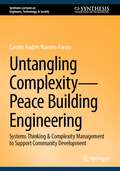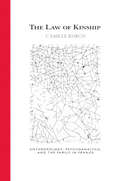- Table View
- List View
Teachers and Philosophy: Essays on the Contact Zone (SUNY series, Horizons in the Philosophy of Education)
by Cara E. Furman; Tomas de Rezende RochaPhilosophers and educators come together to address contemporary issues in education.Teachers and Philosophy showcases the potential of education practitioners and philosophers of education working and writing together. Following Mary Louise Pratt, this meeting space is referred to as a "contact zone," and contributors demonstrate the power and benefit of writing from this liminal space. Introductory and concluding chapters provide an argument for the value of bringing together philosophers and practitioners as well as tips for facilitating these interactions. Situated amid the COVID-19 pandemic, the volume grapples with the challenges that practitioners face around teaching controversial topics, crafting inclusive curricula, indigeneity, dis/ability, urban schooling, nature-based education, rural education, mental health, coping with feelings of anger, and more. Each chapter ends with suggestions for further reading or engagement, questions for reflection and discussion, and an activity that a class or reading group can move through together.
Teaching from an Ethical Center: Practical Wisdom for Daily Instruction
by Cara E. FurmanA methodology for using philosophy to guide teaching preparation and practice
Protocol: The Power of Diplomacy and How to Make It Work for You
by Capricia Penavic MarshallPresident Obama’s former United States chief of protocol looks at why diplomacy and etiquette matter—and how they can help you in everyday life.In her roles as chief of protocol for President Barack Obama and social secretary to President Bill Clinton and First Lady Hillary Clinton, Capricia Penavic Marshall not only bore witness to history, but she also facilitated it. From curating rooms to have an intended impact to knowing which cultural gestures earned trust, her detailed measures were superpower influences that laid the groundwork for successful diplomacy between leaders and tilted the advantage, always, in her team’s favor. Sharing unvarnished anecdotes of harrowing near misses and exhilarating triumphs, Marshall offers the master class in soft power.Praise for Protocol“A trusted friend and a trusted colleague. I can’t imagine anyone who has been a greater public servant.” —Hillary Clinton“Working with Capricia during the Obama administration was nothing short of wonderful! Her guiding hand and innovative methods laid the foundation for our successful diplomacy on the world stage.” —Valerie Jarrett, former senior advisor to Barack Obama and author of Finding My Voice“Fascinating. . . . An informative and often charming primer on a little-known—but vital—government post.” —Kirkus Reviews
Teaching Women's Studies in Conservative Contexts: Considering Perspectives for an Inclusive Dialogue (Routledge Research in Gender and Society #48)
by Cantice GreeneWomen’s Studies is a field that inspires strong reactions, both positive and negative, inside and outside of the classroom. The field, partly due to its activist origins, is often associated with liberal ideology and is therefore chided by students and others who identify as conservative. The goal of this book is to introduce conservative perspectives into the issues of gender, sexuality, race, and power that are topics of teaching and discussion in women’s studies courses. The book also aims to provide examples of pathways by which conservative students and scholars can engage the field of women’s studies, not as opponents, but as contributors. Contributors including administrators, activists, scholar-teachers, artists, and ministers come together in this collection to engage in writing and response and to add their approaches to teaching and administering women’s studies on their campuses.
Research on Normalizing Income Distribution Order in China
by Canming YangThis book systematically studies income distribution order by exploring corruption, political power, labor-capital relation, and recessive economic problems. By categorizing various incomes, the connotation of "income distribution order" is clearly defined, and the income distribution pattern and the formation mechanism of income distribution are studied. Based on a new perspective, this book features the in-depth analysis of reasons for the chaotic income distribution order and naturally derives solutions to standardize the income distribution order. The research method used in this book pays special attention to field research and multidisciplinary comprehensive research method. This study obtains first-hand data through three large-scale household income questionnaire surveys nationwide, through which the income gap between urban and rural areas, different regions, industries, and different income groups in China is measured. Based on this data, the study also analyzes the influence of different factor endowments on residents' income and studies the contribution of these factor endowments to income gap, which contributes on the policy recommendations to narrow the income gap.
Shackled: A Tale of Wronged Kids, Rogue Judges, and a Town that Looked Away
by Candy J. CooperHere is the explosive story of the Kids for Cash scandal in Pennsylvania, a judicial justice miscarriage that sent more than 2,500 children and teens to a for-profit detention center while two judges lined their pockets with cash, as told by Candy J. Cooper, an award-winning journalist and Pulitzer Prize finalist.In the early 2000s, Judge Mark Ciavarella and Judge Michael Conahan of Luzerne County, Pennsylvania were known as no-nonsense judges. Juveniles who showed up in their courtrooms faced harsh words and even harsher sentencing. In the post-Columbine era, many people believed that was just what the county needed to ensure its children and teens stayed on the straight and narrow path. But as more and more children faced shocking sentences for seemingly benign crimes, and a newly built for-profit detention center filled up further and further, a sinister pattern of abuses and bribery emerged. Through extensive research and original reporting leading into contemporary times, award-winning journalist Candy J. Cooper tells the story of a scandal that the Juvenile Law Center calls &“one of the largest and most serious violations of children&’s rights in the history of the American legal system.&”
America the Beautiful: Rediscovering What Made This Nation Great
by Ben Carson Candy CarsonWhat is America becoming? Or, more importantly, what can she be if we reclaim a vision for the things that made her great in the first place? In America the Beautiful, Dr. Ben Carson helps us learn from our past in order to chart a better course for our future. From his personal ascent from inner-city poverty to international medical and humanitarian acclaim, Carson shares experiential insights that help us understand. . . what is good about America. . . where we have gone astray. . . which fundamental beliefs have guided America from her founding into preeminence among nations. Written by a man who has experienced America's best and worst firsthand, America the Beautiful is at once alarming, convicting, and inspiring. You'll gain new perspectives on our nation's origins, our Judeo-Christian heritage, our educational system, capitalism versus socialism, our moral fabric, healthcare, and much more. An incisive manifesto of the values that shaped America's past and must shape her future, America the Beautiful calls us all to use our God-given talents to improve our lives, our communities, our nation, and our world.
Drugs and Crime Deviant Pathways
by Candido Da AgraThis key work exposes international studies from leading social sciences researchers who use various theoretical perspectives and methodological orientations to depict deviant drug and crime-related pathways. The chapters have been grouped into four sections. The first section, Deviance, Set and Setting, discusses a new basis for the understanding of deviant pathways. The second section, Youth, Drug and Delinquency Pathways, presents empirical studies which help to understand the drug-crime relationship. The third section discusses Adult, Drug and Crime Pathways adopted by drug users, flexers , traders or dealers, and traffickers. Finally, the fourth section, Ways Out of deviant pathways, explores approaches for controlling drug use and criminality socially or individually, with or without legal intervention or formal help. In short, this book presents an invaluable overview of the most advanced research in the field of deviant drug-and crime-related pathways.
The Play of Political Culture, Emotion and Identity (Studies in the Psychosocial)
by Candida YatesOffering a uniquely 'psycho-cultural' take on the emotional dynamics of UK political culture this book uses theories and research in psychoanalysis, cultural and media studies and political sociology. It explores the cultural and emotional processes that shape our relationship to politics in a media age, referencing Joanna Lumley to Nigel Farage.
The Play of Political Culture, Emotion and Identity (Studies in the Psychosocial)
by Candida YatesOffering a uniquely 'psycho-cultural' take on the emotional dynamics of UK political culture this book uses theories and research in psychoanalysis, cultural and media studies and political sociology. It explores the cultural and emotional processes that shape our relationship to politics in a media age, referencing Joanna Lumley to Nigel Farage.
Non-Representational Geographies of Therapeutic Art Making
by Candice P. BoydUtilising non-representational theories and practice-led research methods, this book serves to reclaim therapeutics as ecological, spatial and material. It examines the sites and performances of a wide range of therapeutic art practices, including painting and drawing, dance movement therapy, fibre art, subterranean graffiti practice, and poetic permaculture. In doing so it provides an important assessment of the role and status of therapy in contemporary life. A highly interdisciplinary text, Boyd’s research is informed by a thorough reading of post-structural theory including contemporary feminism, Guattari’s ethico-aesthetic paradigm, Whitehead’s process-oriented ontology, and Deleuze’s writing on sense and the event. This innovative study will prove essential for scholars and practitioners of cultural geography, socially-engaged art, therapeutic studies, and occupational therapy.
Conflict Resolution and Peace Education
by Candice C. CarterPeace education includes lessons about conflict sources, transformation and resolution. While featuring field-based examples in multiple disciplines, including political science, anthropology, communication, psychology, sociology, counseling, law and teacher training, this book presents real cases of conflict work. Explained are concepts underlying conflict transformation and strategies that have been adapted for use in professional practice. The contributors describe formal peace education with university students in different fields of study and informal learning of adults in community settings. Comprehensively, this book supports professionals who specialize in conflict work as well as instructors and learners in several disciplines which all respond to conflict.
Dance of the Dolphin: Transformation and Disenchantment in the Amazonian Imagination
by Candace Slater<p>In folktales told throughout much of the Brazilian Amazon, dolphins take human form, attend raucous dances and festivals, seduce men and women, and carry them away to a city beneath the river. They are encantados, or Enchanted Beings, capable of provoking death or madness, but also called upon to help shamanic healers. Male dolphins—accomplished dancers who appear dressed in dapper straw hats, white suits, and with shiny black shoes—reportedly father numerous children. The females are said to lure away solitary fishermen. Both sinister and charming, these characters resist definition and thus domination; greedy and lascivious outsiders, they are increasingly symbolic of a distinctly Amazonian culture politically, socially, economically, and environmentally under seige. <p>Candace Slater examines these stories in Dance of the Dolphin, both as folk narratives and as representations of culture and conflict in Amazonia. Her engaging study discusses the tales from the viewpoints of genre, performance, and gender, but centers on them as responses to the great changes sweeping the Amazon today. According to Slater, these surprisingly widespread tales reflect Amazonians' own mixed reactions to the ongoing destruction of the rainforest and the resulting transformations in the social as well as physical landscape. Offering an informed view of Brazilian culture, this book crosses the boundaries of folklore, literature, anthropology, and Latin American studies. It is one of the very few studies to offer an overview of the changes taking place in Amazonia through the eyes of ordinary people.</p>
Entangled Edens: Visions of the Amazon
by Candace SlaterStories and writings about the Amazon, by insiders (Indians, miners) and outsiders (explorers, scientists). Slater argues that these tales, examined together, show us an Amazon much more complex than "Save the Rain Forest" slogans--a vision that will allow us to save the Amazon in all its human and biological diversity.
Writing and Power: A Critical Introduction to Composition Studies
by Candace MitchellThis book offers a much needed alternative to the more traditional texts used to teach writing instruction. Grounded in history, the book clarifies changing theoretical and practical approaches to teaching writing, critically assessing each approach in relation to the social and political movements of the day, both within and beyond the university. The author takes us inside the real world of writing instruction; not only from the viewpoint of instructor, but as seen through the eyes of students struggling to make sense of the expectations of writing class. Mitchell emphasizes that "writing" entails far more than putting words to paper, and delves into contextually variable culturally defined expectations, that include multiple linguistic forms - both oral and written - highlighting the complexity of writing(s), while engaging the reader in lively academic debates about language and society.
The Current Economy: Electricity Markets and Techno-Economics
by Canay Özden-SchillingElectricity is a quirky commodity: more often than not, it cannot be stored, easily transported, or imported from overseas. Before lighting up our homes, it changes hands through specialized electricity markets that rely on engineering expertise to trade competitively while respecting the physical requirements of the electric grid. The Current Economy is an ethnography of electricity markets in the United States that shows the heterogenous and technologically inflected nature of economic expertise today. Based on ethnographic fieldwork among market data analysts, electric grid engineers, and citizen activists, this book provides a deep dive into the convoluted economy of electricity and its reverberations throughout daily life. Canay Özden-Schilling argues that many of the economic formations in everyday life come from work cultures rarely suspected of doing economic work: cultures of science, technology, and engineering that often do not have a claim to economic theory or practice, yet nonetheless dictate forms of economic activity. Contributing to economic anthropology, science and technology studies, energy studies, and the anthropology of expertise, this book is a map of the everyday infrastructures of economy and energy into which we are plugged as denizens of a technological world.
The Change Catalyst: Secrets to Successful and Sustainable Business Change
by Campbell MacphersonWINNER OF BUSINESS BOOK OF THE YEAR 2018 (The Business Book Awards) "Essential reading for CEOs and leaders of change." - Martin Davis, CEO, Kames Capital 88% of change initiatives fail. The Change Catalyst provides you with the insight, tools and know-how you need to make sure your next change, strategy or M&A is the one in eight that succeeds. Whether you're trying to change a process, a culture, a behaviour or an entire business, success demands complete clarity of what you are trying to achieve and why, followed by a clear plan to align your people to deliver. All change is about people, and one of the most important ingredients for successful change is the identification and appointment of a Change Catalyst. This is the person who can guide your organisation – its people and its processes – to the ultimate delivery of the outcomes your business needs. The book takes you deep inside the culture and process of change to show you how to set yourself up for success in both the short and long term; identify your goal, clarify your vision, stay focused on the outcome and develop and deliver a do-able plan. It will also explain how to genuinely engage stakeholders at all levels in every stage of the process. Real-world case studies show you what a successful change initiative looks like on the ground, and the Change Toolbox offers a collection of proven tools and models to streamline planning and implementation. Clear, intelligent guidance cuts through the buzzwords to get down to business quickly, and a pragmatic, holistic approach helps you tackle strategy, culture, execution and more. People don't like change; it rattles their cages and makes them uncomfortable – and emotion trumps logic every time. This book shows you how to pinpoint the emotional triggers, coax logic out of hiding and get everyone on board as you drive real, lasting change. Learn why typical change initiatives are far more likely to fail than succeed. Identify your Change Catalyst to strengthen both process and outcome. Overcome cultural challenges and turn understanding into transformation. Develop and implement a solid strategy for successful change. Whether you want change at the team level or on a government scale, no initiative is immune from the perils of inertia, misguided focus, distracted leadership or muddled planning. Change is inevitable. Successful change isn't. The Change Catalyst will tilt the odds on your favour and enable your next change initiative to be among the 12% that succeeds.
The Power to Change: How to Harness Change to Make it Work for You
by Campbell MacphersonHow we work, the way we live, even how long we live are changing at such a breathtaking pace that only those who can embrace everything that's going on and reinvent themselves will survive and thrive.Yet change - even good change - is tough. Most of us feel utterly powerless when confronted by it, but we're not. Learn to harness challenging situations and see the new opportunities with The Power to Change.The Power to Change does more than simply enable you just to cope with change - it gives you the tools and approaches to embrace and celebrate change. Written by award-winning author, Campbell Macpherson, this book provides a genuinely unique approach to celebrating change that will resonate with readers, no matter what sort of change they have to confront. The Power to Change gives readers the permission to feel emotional and have doubts and fears about change. It provides a range of techniques to put change into perspective, and allows readers to embrace and prosper from the challenges it presents.
The Great Transition
by Bruce CampbellIn the fourteenth century the Old World witnessed a series of profound and abrupt changes in the trajectory of long-established historical trends. Transcontinental networks of exchange fractured and an era of economic contraction and demographic decline dawned from which Latin Christendom would not begin to emerge until its voyages of discovery at the end of the fifteenth century. In a major new study of this 'Great Transition', Bruce Campbell assesses the contributions of commercial recession, war, climate change, and eruption of the Black Death to a far-reaching reversal of fortunes from which no part of Eurasia was spared. The book synthesises a wealth of new historical, palaeo-ecological and biological evidence, including estimates of national income, reconstructions of past climates, and genetic analysis of DNA extracted from the teeth of plague victims, to provide a fresh account of the creation, collapse and realignment of Western Europe's late medieval commercial economy.
Positive Prospects: Careers for social science graduates and why number and data skills matter
by Campaign for Social ScienceAlmost four in ten graduates studied one of the social sciences. Where do they go to work? How do their employment and earnings compare to those who graduate from other areas? What makes a difference to their employment chances? Positive Prospects provides a brief description of employment after graduation for those who study a wide range of social science subjects, using up-to-date information. The report gathers evidence from many sources about longer-term prospects and the backgrounds of ‘world leaders’. It shows that there is variation between those graduating from different social science disciplines, as there is with so-called STEM (science, technology, engineering and maths) graduates. Positive Prospects takes a look at the effect of graduating from different types of university, while observing that this reflects a great many factors such as students’ backgrounds and where they live and study. One clear theme is that having number and data skills – either from secondary school or as part of undergraduate study – is likely to give individuals of every discipline a wider range of choices about work, meaning they are likely to earn more. Needless to say number and data skills are not the only things that matter, nor do all social science students need the same skill level. But the Campaign for Social Science has long believed that we need more people with conceptual social science skills and knowledge combined with some number and data skills – Positive Prospects shows that this combination has clear benefits. The Campaign has also prepared summaries aimed specifically at undergraduates, schools, and school students.
The Business of People: The significance of social science over the next decade
by Campaign for Social ScienceTackling infectious disease, understanding radicalisation, improving productivity, siting new airport capacity, getting people to save for retirement - nearly all the issues facing the UK now and in the near future demand the urgent attention of those trained to study human processes. In short, we need sharp social science now more than ever. The Business of People looks at the backdrop to the UK elections taking place in May 2015 to argue that we need to invest in science and innovation - not just for the sake of 'UK plc' and prospects for growth and economic recovery, but to inform debate and policymaking on migration, housing, devolution of power within the UK, and the UK's position in Europe. The report sets out the need for new economic and social knowledge and illustrates the many ways in which social scientists are contributing to changing practice and deepening knowledge. It outlines the size and structure of UK social science, its contribution to GDP, how social science graduates are essential to the work of firms, government and the third sector. The report ends with a set of recommendations for the next few years - urgent reading for the next government - on research funding, social science capacity and the use of expert advice by government. An open access electronic version of the report is downloadable from http://campaignforsocialscience. org. uk/businessofpeople/
The Place to Be?: How social sciences are helping improve places in the UK
by Campaign for Social ScienceThis Academy of Social Sciences report shows how UK social sciences are making powerful practical contributions to improving places – cities, regions, counties or countries – in the UK. It includes 24 case studies highlighting how university-based social scientists are helping with place-based ‘levelling up’. It covers many different social science disciplines in all parts of the UK working on projects from the purely local to those that tackle issues that occur across the UK but that affect different areas or regions differently. The examples are not about broader social science research or policy prescriptions but practical efforts to work with private sector businesses, local authorities and local health and education bodies and others to improve area-based disadvantage in the UK.
The Place to Be?: How social sciences are helping improve places in the UK
by Campaign for Social ScienceThis Academy of Social Sciences report shows how UK social sciences are making powerful practical contributions to improving places – cities, regions, counties or countries – in the UK. It includes 24 case studies highlighting how university-based social scientists are helping with place-based ‘levelling up’. It covers many different social science disciplines in all parts of the UK working on projects from the purely local to those that tackle issues that occur across the UK but that affect different areas or regions differently. The examples are not about broader social science research or policy prescriptions but practical efforts to work with private sector businesses, local authorities and local health and education bodies and others to improve area-based disadvantage in the UK.
Untangling Complexity—Peace Building Engineering: Systems Thinking & Complexity Management to Support Community Development (Synthesis Lectures on Engineers, Technology, & Society #29)
by Camilo Andrés Navarro ForeroThis book examines how the rapid acceleration and interconnection of globalization comes with the need for more flexible and adaptable solutions to complex problems and solutions. It describes and demonstrates possible combinations of methods and methodologies to address the complex problems that the world offers us today. Sharing meaningful experiences of the application of workshops in mixed public private companies and with vulnerable communities and peacebuilding communities. The text offers readers, who are looking for tools to face complexity and enhance their projects, real-world examples and accessible methods. The book is based on advanced engineering tools however it is understandable and accessible to a broad audience.This book is for decision makers involved with social complex systems who are uncertain about how they should start and proceed. Discussions on new methodologies to support engineering interventions with communities are being shown. A new multi-methodology proposal called “Complexity Funnel Methodology” (CFM) dissected in “Social Transformation Workshops” (STW) is provided and discussed. It is used with combinations of different methods and methodologies of critical Systems thinking. The implementation of this methodology is described using a case study approach.
The Law Of Kinship
by Camille RobcisIn France as elsewhere in recent years, legislative debates over single-parent households, same-sex unions, new reproductive technologies, transsexuality, and other challenges to long-held assumptions about the structure of family and kinship relations have been deeply divisive. What strikes many as uniquely French, however, is the extent to which many of these discussions-whether in legislative chambers, courtrooms, or the mass media-have been conducted in the frequently abstract vocabularies of anthropology and psychoanalysis. In this highly original book, Camille Robcis seeks to explain why and how academic discourses on kinship have intersected and overlapped with political debates on the family-and on the nature of French republicanism itself. She focuses on the theories of Claude Levi-Strauss and Jacques Lacan, both of whom highlighted the interdependence of the sexual and the social by positing a direct correlation between kinship and socialization. Robcis traces how their ideas gained recognition not only from French social scientists but also from legislators and politicians who relied on some of the most obscure and difficult concepts of structuralism to enact a series of laws concerning the family. Levi-Strauss and Lacan constructed the heterosexual family as a universal trope for social and psychic integration, and this understanding of the family at the root of intersubjectivity coincided with the role that the family has played in modern French law and public policy. The Law of Kinship contributes to larger conversations about the particularities of French political culture, the nature of sexual difference, and the problem of reading and interpretation in intellectual history.
